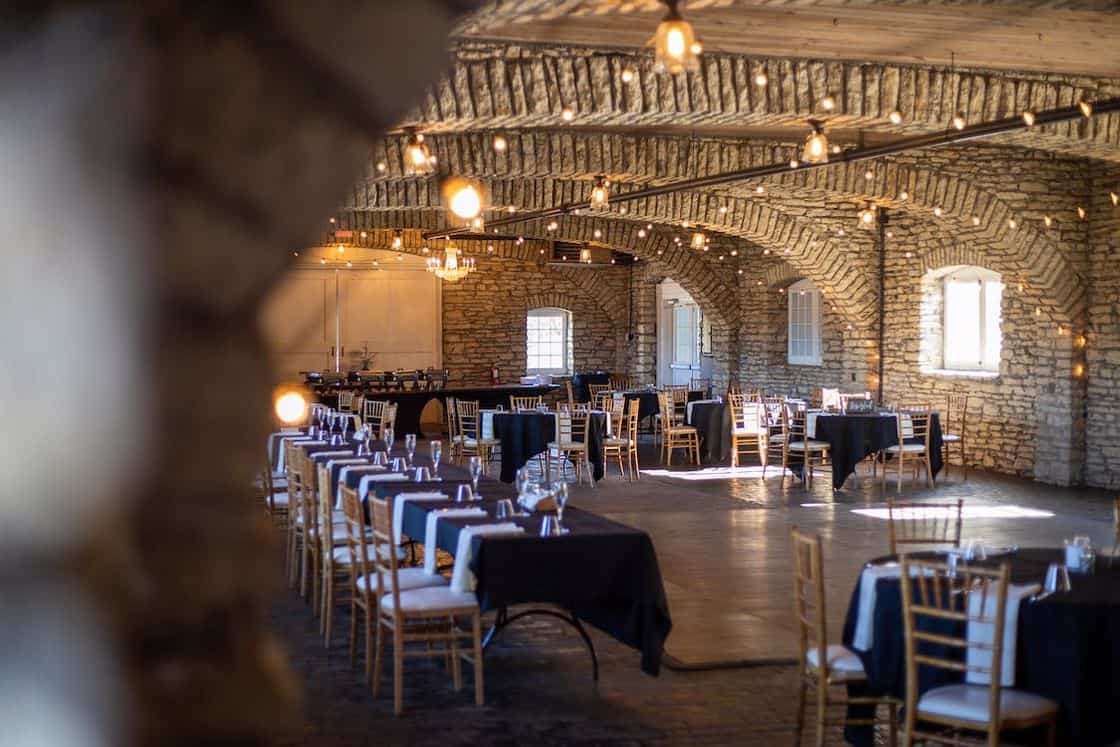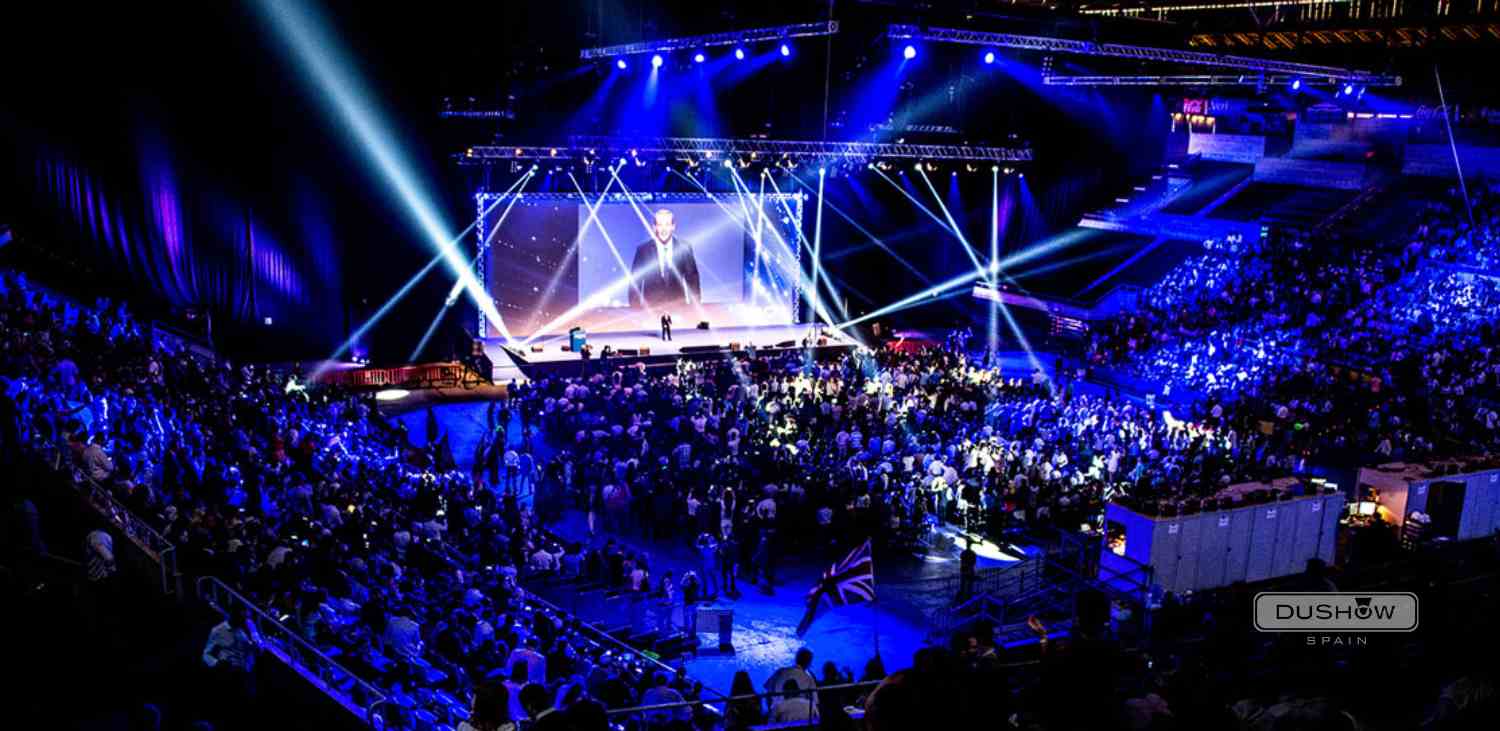A comprehensive guide to planning with event production charlotte
Exactly How Event Production Works: A Comprehensive Check Out the Process
Event production is a complex and organized procedure that calls for careful planning and implementation. It begins with establishing clear goals and comprehending the target market. Each step, from budgeting to location selection, plays a critical function in guaranteeing success. As the process unfolds, different elements need to align flawlessly. Yet, the subtleties of this elaborate operation frequently go unnoticed. What are the essential stages that add to an unforgettable event?

The First Drawing Board
When beginning on event production, mindful preparation is important to guarantee a successful end result. The first planning stage serves as the foundation for all succeeding initiatives. During this phase, event manufacturers must specify the event's purpose and goals plainly. Recognizing the target market assists tailor the experience and messaging, ensuring relevance and engagement.Producers need to also take into consideration the event style, whether it be in-person, virtual, or hybrid, as this will influence various logistical elements. Selecting an appropriate date and place is crucial, as it influences access and availability.Furthermore, putting together a dependable group is essential for dividing duties and enhancing communication. Establishing a timeline with landmarks assurances all tasks are finished on timetable. This stage involves extensive study, including determining potential difficulties and developing strategies to minimize dangers. Ultimately, a well-structured initial planning phase sets the tone for an effective event production journey.

Budgeting and Source Allotment
In event production, effective budgeting and resource appropriation are critical for success - event production charlotte. Establishing financial parameters establishes the foundation for all succeeding decisions, while resource distribution methods ensure that every part of the event is appropriately sustained. Together, these aspects help keep control over expenditures and maximize making use of offered resources
Developing Financial Parameters
Developing financial criteria is essential to the success of any type of event production, as it establishes the structure for effective budgeting and resource allowance. This procedure starts with specifying the overall spending plan, which incorporates all aspects of the event, including location costs, food catering, and advertising. By identifying available funds, event coordinators can prioritize expenses and allot sources appropriately. In addition, it is necessary to perform extensive marketing research to anticipate prospective prices and recognize financing resources, such as sponsorships or ticket sales. Establishing clear monetary specifications also aids in risk monitoring, permitting coordinators to allot backup funds for unforeseen expenditures. Inevitably, a distinct budget plan works as a roadmap, directing the event production team in the direction of attaining their goals while maintaining economic control.
Source Circulation Approaches
Effective source circulation strategies are vital for making the most of the impact of an occasion while adhering to budget restraints. Effective event production needs a meticulous approach to budgeting and source allowance. Organizers have to focus on crucial aspects such as location, wedding catering, and technology, making certain that funds are alloted to areas that improve guest experience. An in-depth budget must outline expected costs and recognize areas for possible expense financial savings, such as negotiating with suppliers or exploring sponsorship chances. Additionally, tracking expenditures throughout the preparation procedure helps stop overspending. By utilizing calculated source distribution, event producers can provide a remarkable experience while maintaining financial responsibility, ultimately adding to the overall success of the event.
Location Selection and Logistics
Selecting the best place is important to the success of any kind of event, as it establishes the phase for the total experience. Place choice involves assessing different variables, consisting of capability, ease of access, and area. Organizers must think about the target market and the nature of the event, making sure the venue straightens with the event's goals.Logistics play a considerable function in this process, involving plans for seats, audiovisual devices, and catering solutions. An appropriate location ought to promote smooth circulation for attendees and team, boosting engagement.Additionally, examining prospective venues for amenities like parking, washrooms, and emergency situation leaves is very important for safety and ease. The timeline for safeguarding the location is also essential, as popular locations might schedule swiftly - event production charlotte. Detailed preparation and prompt execution can eventually add to a smooth event experience, making place option and logistics basic parts of effective event production.
Creative Idea Development
While the location establishes the physical phase, creative idea growth shapes the event's identity and narrative. This procedure begins with determining the event's purpose and target audience, enabling event producers to create a compelling style that resonates with guests. Conceptualizing sessions frequently consist of varied point of views, cultivating innovative concepts that line up with the event's goals.Once a motif is established, visual aspects such as color schemes, signage, and style are created to boost the general atmosphere. Narration techniques may likewise be incorporated to produce an engaging journey for individuals, assuring a memorable experience. In addition, considerations relating to enjoyment, tasks, and interactive elements are lined up with the picked idea, enhancing the motif throughout the event.Ultimately, efficient imaginative idea advancement assurances that every element of the event functions cohesively, leaving a lasting impact on attendees and meeting the event's objectives. This fundamental job prepares for succeeding preparation and implementation phases.
Collaborating With Suppliers and Distributors
Successful event production rests on effective cooperation with vendors and providers. Choosing trusted companions, negotiating contracts effectively, and ensuring timely shipments are critical action in this procedure. Each of these elements adds greatly to the overall success and smooth execution of an occasion.
Choosing Reliable Allies
Exactly how can event coordinators guarantee a seamless production experience? Picking trusted partners is essential in achieving this goal. Event organizers need to perform comprehensive study to determine suppliers and distributors with a tested record of quality. This includes inspecting references, reviewing profiles, and reviewing client feedback. Coordinators must focus on companions who show professionalism, timely communication, and a readiness to team up. Building solid connections fosters count on and allows fast analytical during the event. In addition, it is advantageous to select local vendors that recognize the location and regional logistics. Ultimately, an effective event rests on the synergy between planners and their companions, making sure that every facet of production runs efficiently and efficiently.
Negotiating Contracts Successfully
Effective arrangement of agreements is an important action in the cooperation between event coordinators and their suppliers and suppliers. This procedure includes clear communication of expectations, deliverables, and timelines. Organizers ought to carry out extensive research study on market prices and market requirements to establish a standard for negotiations. It is essential to produce a collaborative environment, motivating open dialogue concerning terms, rates, and prospective contingencies. Organizers should additionally focus on understanding the vendor's capabilities and restrictions to align their demands successfully. Flexibility can cause mutually advantageous arrangements, cultivating long-term relationships. Crafting distinct contracts that include certain performance metrics can assist guarantee accountability, ultimately causing effective event execution and complete satisfaction for all celebrations included.
Making Sure Timely Shipments
Prompt shipments are important for the smooth implementation of any type of event, needing diligent partnership between coordinators and their suppliers and distributors. Effective interaction is crucial, as it helps advice establish clear expectations relating to delivery schedules, quantities, and certain requirements. Coordinators typically develop comprehensive timelines to outline important milestones, making sure all events remain lined up throughout the procedure. Regular check-ins with suppliers can aid recognize prospective delays early, permitting for aggressive options. Additionally, developing solid relationships with reliable vendors fosters trust and responsibility, which can result in far better service and prioritization. By focusing on these collaborative initiatives, coordinators can decrease disturbances, thereby enhancing the general efficiency of event production and making certain that all required products and solutions arrive as intended.
Marketing and Promotion Methods
While arranging an event, the success of advertising and promo techniques can substantially influence attendance and involvement. Reliable methods usually include a mix of electronic advertising and marketing, traditional marketing, and grassroots outreach. Using social networks platforms permits real-time interaction and targeted advertising and marketing, reaching particular demographics efficiently. Email advertising campaigns can even more engage potential attendees with individualized content and reminders.Collaborations with influencers or sector leaders can also boost integrity and broaden reach. Developing appealing content, such as video clips or blogs, helps to generate buzz and suffer interest leading up to the event. In addition, leveraging early-bird discount rates and unique perks can incentivize ticket purchases.Promoting with conventional networks, such as posters or regional media, remains relevant, particularly in community-focused events. A comprehensive strategy that incorporates multiple top article methods guarantees optimum visibility and involvement, eventually adding to the event's success and the development of a remarkable experience for attendees.
On-Site Implementation and Administration
On-site execution and administration are essential parts that figure out the overall success of an event. Reliable coordination during the event guarantees that all components straighten with the intended schedule. Event supervisors look after logistics, consisting of vendor coordination, equipment setup, and guest services. Keeping track of timelines and dealing with any type of unforeseen issues are basic for maintaining a smooth experience.The team plays a considerable duty, as experienced workers are accountable for numerous tasks such as registration, details dissemination, and technical assistance. Interaction among staff member is critical; it cultivates a collaborative environment and enables quick resolution of challenges.Additionally, safety protocols should be adhered to, protecting the health of all guests. Post-event assessments are additionally component of on-site management, giving insights for future improvements. By concentrating on these facets, event producers can create remarkable experiences that satisfy or surpass guest expectations while accomplishing the event's goals.
Frequently Asked Inquiries
How Do I Pick the Right Event Theme?
Selecting the best event style involves considering the target audience, event purpose, and location. Looking into present patterns and gathering input from stakeholders can likewise motivate imaginative concepts that reverberate and produce a memorable experience.

What Are Usual Blunders in Event Production?
Typical errors in event production usually include insufficient preparation, bad interaction among group members, budget mismanagement, neglecting to think about the audience's demands, and failing to perform an extensive post-event evaluation for future enhancements.
Exactly How Can I Measure Event Success?
To determine event success, one can assess guest fulfillment, interaction degrees, budget plan adherence, and post-event comments. Secret performance indications, such as ticket sales and social media interactions, likewise click here now provide useful understandings into overall effectiveness.
What Should I Do if It Moistens the Event Day?
In the event of moisten the day, the coordinator ought to apply backup strategies, such as securing tents or relocating activities indoors. Interaction with participants about changes is vital to guarantee a smooth experience regardless of climate difficulties.
How Can I Guarantee Attendee Interaction Throughout the Event?
